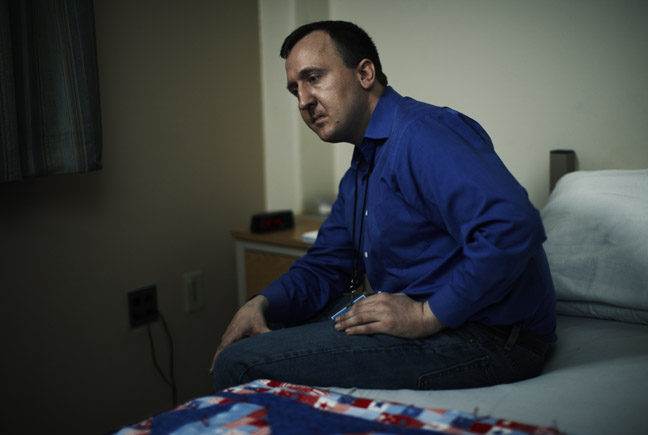We
should have seen the demons in Andy about the time he pulled out his
night-vision monocular and crawled under my house. Instead we just
stood around in the dark.
That
was seven years ago. Andy Kubik had recently returned from Iraq and
dropped by for lunch because a mutual friend thought we might get
along. Stationed at an Air Force base nearby, he rumbled into my small
Alabama town on an enormous black Harley, like Thor returning from war.
Even before everything that followed, even before the cracks started to
show, Andy seemed like a man formed from two conflicting types of clay:
the heroic and the vulnerable. The godlike and the human. He removed
his helmet and goggles, revealing his curled blond hair, and
transformed into something smaller and quieter, apologizing for the
noise before he dismounted.
After
lunch that day, Andy spent three nights on our sofa, which spooked my
wife. Relax, I told her. This guy’s a war hero. One of the greatest
alive, maybe.
Andy
worked for the Air Force as a sort of supersoldier. He had fought in
covert operations and killed bad men in scores, and according to the
Air Force itself, Andy’s actions in Afghanistan — his personal actions
— “were overwhelmingly responsible for breaking the back of Taliban
resistance.” So if the guy needed to crash, he could certainly use our
couch. |
 |